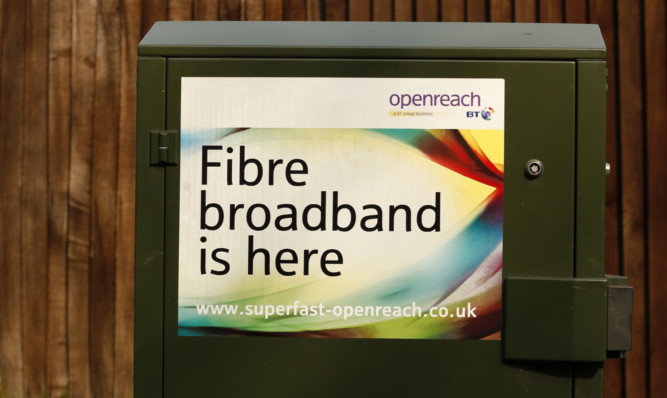Broadband in rural areas such as Highland Perthshire could see new investment after a landmark ruling by the communications regulator.
The regulator said BT must open up Openreach, which provides the final mile of network connection into consumers’ homes, to allow rivals to build their own advanced fibre networks connected directly to homes and offices.
The regulator’s Strategic Review of Digital Communications its first significant review of the telecoms sector for a decade said evidence showed Openreach “still has an incentive to make decisions in the interests of BT, rather than BT’s competitors, which can lead to competition problems”.
It has outlined a new strategy to promote large-scale roll-out of new ultrafast broadband networks, based on cable and fibre lines, as an alternative to the partly copper-based technologies being planned by BT.
Mid Scotland and Fife MSP Murdo Fraser broadly welcomed Ofgem’s report. He said: “What is absolutely clear is that the current system needs to change in order for rural areas to receive fast and reliable internet connections.
“In recommending that Openreach allow other internet providers access to their network of poles, cables and tunnels, Ofcom is supporting greater competition and therefore more investment in rural broadband.
“This move will allow the industry to have more input in decision making. I would also welcome the toughening up of penalties for providers who fail to deliver proper service.
“However, if these recommendations fail to improve broadband for rural residents then the future of Openreach must be looked at again.”
Perth-based SSE is among the companies that intends to capitalise on Ofcom’s decision. A spokesperson for the energy company said: “SSE has entered the broadband market, seeking to provide great deals for customers.
“We support Ofcom’s proposed reform of Openreach to improve its transparency and give its customers a real say in investment plans. BT should not have an undue influence over the investment decisions made by Openreach. For many, broadband is now an essential service and it’s time we started treating it like one.”
